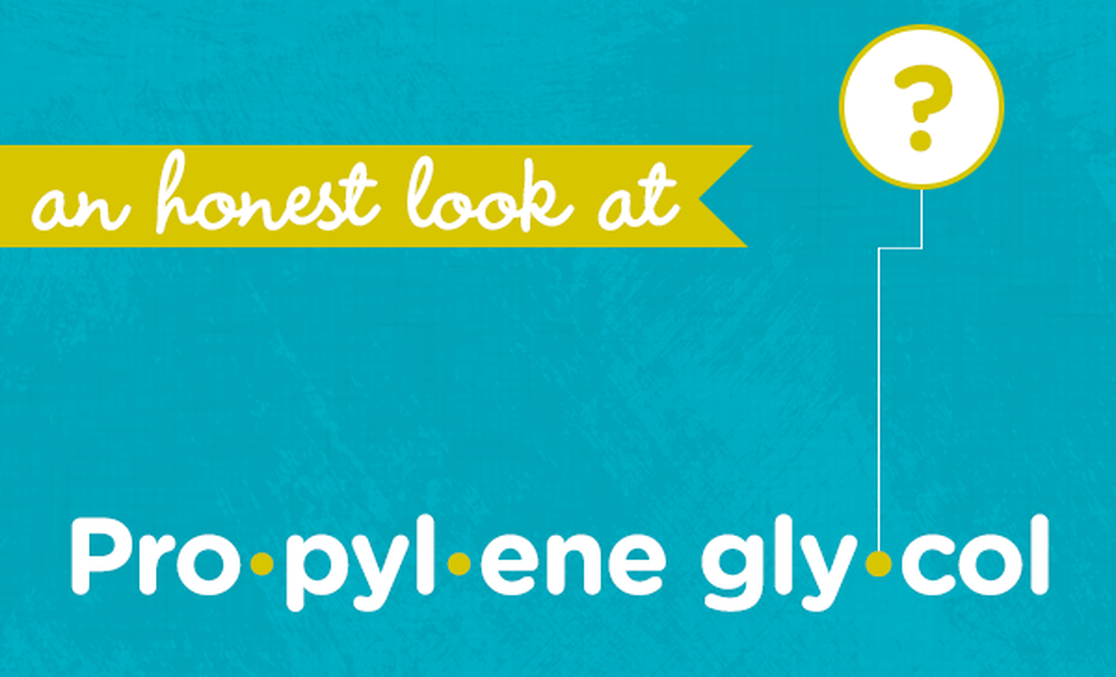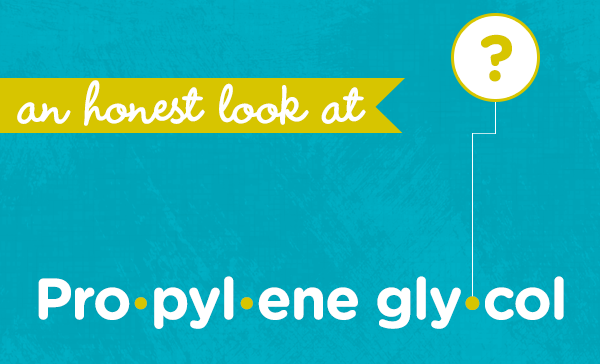This is part of our ongoing series to help consumers better understand chemicals, chemistry, and product formulations. We translate the science, bust the myths, and give you an honest assessment, so you can make informed choices for your family!
Ingredient: Propylene Glycol
What it is: An alcohol made from a plant-based glycerin.
What it does: Propylene glycol is often used as an emulsifier to help ingredients blend in a formula. In the Honest Dryer Cloths, it helps emulsify the canola oil-based fabric softener into the solution we infuse in the cloths.
Why we use it: Compared to commonly used alternatives which are inherently toxic, contain toxic impurities, or degrade into toxic chemicals, the type of propylene glycol we use is very mild, non-irritating, non-carcinogenic, non-genotoxic, renewable, and biodegradable.
Why we’re featuring it today: Today we’re featuring propylene glycol for two reasons: to clarify source and safety. First of all, you’ll notice above we say “the type of propylene glycol we use.” That’s because there are indeed different types/sources of this chemical and that causes some confusion. Propylene glycol used to solely be made from petrochemicals, but in recent years chemists figured out how to manufacture it from a plant-based by-product of the biofuel industry. Our new biobased version of PG is an award-winning development in green chemistry.
Secondly, some of you have noticed that propylene glycol is rated poorly on EWG's Skin Deep database on personal care products, but gets an A in their cleaning guide for use in cleaning products. This difference is due to exposure routes and EWG's personal weighting system for this ingredient. The main concern about using it in body care products is that it can produce allergic reactions. Even in this situation, reactions reportedly only occur at levels of 2% or more, but our dryer cloths have less than .02% propylene glycol. So, even if your skin comes in contact with them, you shouldn’t experience any problems. Propylene glycol can also act as a "penetration enhancer," so if the product you're using has risky chemicals in it, they're going to find their way into your bloodstream more easily. Again, it has to be in higher concentrations and be directly applied to your skin, but good news is that this simply isn’t the situation with our dryer cloths.
Overall, propylene glycol is considered a safe ingredient not just for cosmetic products, but also for products we consume like food and pharmaceuticals. It's on the US Food and Drug Administration's list of ingredients which are Generally Recognized As Safe (GRAS) and is recognized by the World Health Organization as safe for use. Sometimes we disagree with what these government bodies deem safe, but in the instance of propylene glycol and its very low concentration in our dryer sheets, we firmly stand behind its safety.
Have any other questions about propylene glycol? Let us know and we’ll do our best to respond!
We aim to provide you with the most honest and credible information possible. This article was reviewed for accuracy by The Honest Team and was written based on sources that are linked at the bottom of the article.
blog_review_statement




